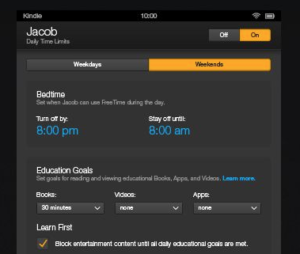With the widespread use of social media and easy access to devices, it is inevitable that your children will come across something that is inappropriate or dangerous. Parents feel a sense of relief with the implementation of parental controls, but how much control do these restrictions really have? People have gone as far as to make youtube tutorials on how to disable and manipulate these controls. Don’t be so naive when it comes to the internet, there are many ways to combat and maneuver your way around these restrictions. Always think one step ahead of your children by upping your parental control game and adding necessary preventive measures for the safety of your children. Fear not, there are many ways you can monitor and filter explicit content beyond your realm of parental control knowledge. I think that tackling the situation at a cooperative and collaborative approach will allow your kids to understand your perspective rather than to paint you as the enemy and instead find sneaky ways to outsmart you. Here are some tips to step up your parental controls and allow your children to browse with a peace of mind.
1. Let’s Get Down to the Roots
Let’s take a look at where all internet access in your household come from. The router, of course. This is where you should begin to execute your plans on tightening controls. Some routers may already have built-in parental controls or give you the option to set them up yourself. If your router doesn’t include parental controls, you can use OpenDNS to set up parental controls on virtually any router. You can customize your filtering level to block categories of websites that you wouldn’t want your child to view.
2. Stronger Filters
With basic parental controls on your tv, desktop, and other devices, it is easy for kids to manipulate around these. It is your best bet to go that extra mile to ensure that your child doesn’t come across explicit content. NetNanny is an application that filters porn and other offensive content. It will even go as far as concealing swear words that appear on your child’s Facebook wall. Google and Bing have “SafeSearch” settings that screen for websites that display sexual content and blocks them from search. TinyFilter is a great extension to use for filtering because it doesn’t just block websites by their URL but specified keywords you can input when you are setting it up. If you want to kick it up a notch, you can block websites entirely with a Firefox extension, ProCon Latte Content Filter. If your child tries to visit a website containing those keywords, it will be completely blocked.
3. Designated Play Time
Setting designated times for your child to browse can keep them from surfing the internet all day and wandering onto something that might not be appropriate. I think it is healthy to limit the amount of time spent on the internet; not just for children, but for anyone. It seems that the upcoming generation has reliant and dependent on the use of their phones and other technological devices they can access social media and the vast depth of the internet. Limiting device usage can encourage children to go outside and participate in physical and creative activities that stimulate physical and mental health. There are even applications that reward your children with internet usage. Amazon’s FreeTime has a feature called “learn first” that requires kids to read or write on an educational app before they can access internet “playtime.” Another great tip for Google Chrome or Firefox users is to download extensions like Leechbox or Nanny for Google Chrome that limit internet usage based on user-defined content. QuStodio is another great installation for setting time usage limits and blocking inappropriate apps.
Regardless of the preventive measures taken with parental controls, it is important to communicate with your children on the dangers of the web and to make sure they understand you come from a place of concern and love when it comes to restricting and filtering their internet use. Your child is more likely to cooperate with you if they can understand and respect your decision.
By Wendy Wang,





